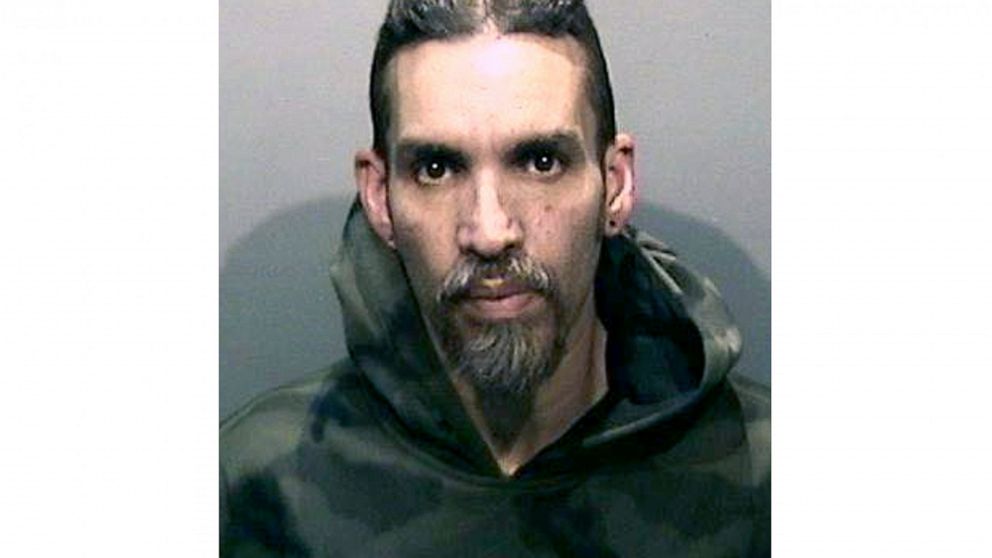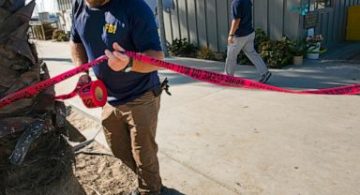
The founder of an artists’ collective in a San Francisco Bay Area warehouse that caught fire two years ago, killing 36, said that the many police, fire and other officials who visited the communal live-work space never notified him it might be a fire hazard.
Derick Almena, 49, took the stand Tuesday in an Oakland courthouse for the second day. He faces 36 counts of involuntary manslaughter along with co-defendant Max Harris, 29.
Prosecutors say Almena stuffed the so-called Ghost Ship warehouse in the city of Oakland with highly flammable materials that made it nearly impossible for attendees of a Dec. 2, 2016, electronic music party to escape when fire broke out.
Defense attorney Tony Serra repeatedly asked Almena about instances in which fire, police and other city officials toured inside the two-story building and never said anything to him about it being dangerous.
Serra peppered Almena with questions: Did you receive a notice to get permits? Never. What about a notice to red-tag the building because it was so unsafe? Never. Did you feel that everything was legal?
“It was awesome, yeah,” said Almena, adding that the artists took pride in the warehouse. “We felt good about what we were doing.”
Almena said government officials, including child protective services, local fire and teachers, toured the property on 33 occasions. They walked up and down the stairs he built to get to the second floor, where he, his wife and three children slept, and said nothing about safety.
Prosecutors say Almena illegally converted the warehouse into a living space and failed to provide smoke detectors, fire alarms, sprinklers and other required safety equipment. They say Harris helped Almena convert the warehouse, collect rent and schedule concerts there.
Both defendants pleaded no contest to 36 counts of manslaughter last summer, but a judge scuttled the proposed plea deal after victims’ families objected to their proposed sentences as too lenient. The judge said that Almena failed to show remorse.
Serra questioned Almena about several occasions on which government authorities visited the warehouse, including the time a fire broke out in 2014, destroying a deck. Almena testified that Maria Sabatini, an Oakland fire investigator, toured the inside. Sabatini previously testified she did not tour the inside of the property.
Police and fire officials were also called to the warehouse during a Halloween party when a person got trapped on the roof, forcing authorities to use the second floor to access the roof, Almena said.
Almena did not break down in tears, as he did at times Monday when asked how he felt about the blaze that killed 36 people. He digressed often and was frequently ordered by the judge to answer the questions.
Almena disputed characterizations by prosecutors that the home was a crowded maze, saying there was a clear hallway on the bottom floor. He said he tried his best to keep the place clean and safe, but he was stymied by a landlord who refused to help and who tricked him into renting a space unsuitable for working artists.
The owner of the building, Chor Ng, has not been charged and has not spoken about the fire.
Defense lawyers are also arguing that the fire was set deliberately by outsiders. Federal fire officials traced the origin of the blaze to a back corner of the ground floor of the warehouse but did not determine a cause.
Serra closed his questioning of Almena with an enlarged photo of Almena and his family. Asked if he would ever put his family at risk, he said “no.”
Alameda County Deputy District Attorney Autrey James began questioning Almena late Tuesday, pointing to inconsistent statements he had made. The prosecution continues its questioning of Almena on Wednesday.





